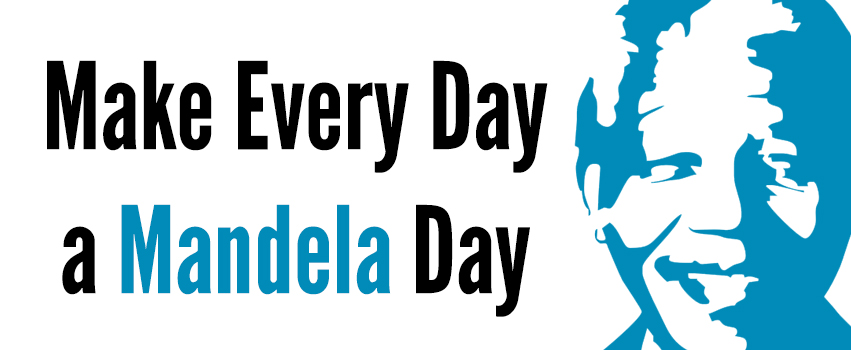In November 2009, the United Nations General Assembly declared that 18 July should be commemorated as “Nelson Mandela International Day”, in recognition of his “struggle for democracy internationally and the promotion of a culture of peace”.
It is unfortunately all too easy to imagine Mandela looking on in dismay at where we are in 2016, in South Africa and other nations on the continent – both in terms of the state of democracy itself, but also the quality and character of many of those who lead our nations.
The South African celebration of Mandela Day focuses on acts of charity. And, even though nation-building exercises like Mandela Day can frequently appear to be little more than an excuse for some warm and fuzzy sentimentality, my hope is that this year – especially on July 18 – was a reminder that 67 minutes of our time, on one day of the year, will probably make no difference at all.
It’s perhaps not meant to make a difference in any case – at least not in isolation, and not because of any particular activity you might perform during the 67 minutes that we’re being encouraged to donate, in honour of Mandela’s 67 years of service to South Africa. The 67 minutes spent assisting some charity or another will be appreciated, but are unlikely to make a lasting difference unless we use the day as motivation to become more engaged in general.
The Nelson Mandela Centre reminds us that the campaign calls on us to “make every day a Mandela Day” rather than engaging in a box-ticking exercise on one day of the year, then thinking that you’ve done your bit. The latter sort of engagement is good for sentiment, and for giving middle-class folks an anecdote to tell over dinner, but not for much else.
The sort of sentimentalism that can result from encouraging (and engaging in) drive-by charity has more fundamental consequences than simply allowing us to imagine ourselves as humanitarians or philanthropists for a day. It might serve as a general mechanism for deferring responsibility for improving your environment, while being able to claim that it’s others that are negligent. What did they do on Mandela Day, after all?
It sometimes seems that South Africa is a nation of sentimentalists, who have learnt to wring our hands while (much of the time) also sitting on them. Furthermore, if Mazar and Zhong are correct with their version of the “green halo” concept, our occasional “virtuous acts can license subsequent asocial and unethical behaviours” due to the fact that we feel like we’ve paid our social dues and can now spend our credit selfishly.
Not that I’m intending to argue that you need to do something on Mandela Day, or any other day. The point is rather that if you do care, and want to do something inspired by Mandela or Mandela Day, it should perhaps be on your own initiative rather than prompted by radio or television advertisements, or by our nostalgic memories of queuing to vote in 1994.
Any day can effectively be a Mandela Day, and that day can also simply be known as “Monday”, “Thursday” or “today”. I’m not disputing the symbolic value of standing together in an attempt to make a difference or show solidarity. However, symbols need to represent something to retain that value or force, and here, the “representing” seems to be largely self-referential.
We engage in symbolic gestures such as lighting a candle for Mandela (on the assigned “day”, of course), and then tomorrow, we go back to race-baiting in online comment threads. But long as your Facebook status mentions that candle, everyone will know that you’re Proudly South African.
There’s a simple thing that we can all try to do which costs no money and only a marginal increase (if any) in the investment of time. Many of the things that worked about the years after 1994 revolved around listening to and attempting to understand each other. Let’s perhaps try that again, rather than engaging in a day of meaningless symbolism.



